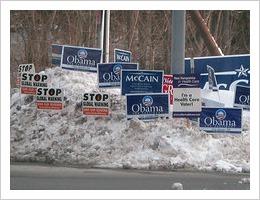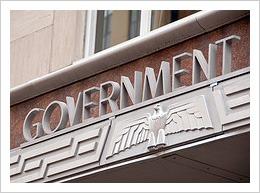 The principal investigator of this project is Sheila Kaplan. The EPA has a vast mandate - protecting air, water, land and people from pollutants. But year after year, through both Republican and Democratic administrations and Congresses, strong economies and weak ones, the institution fails the American public in many ways. The evidence abounds. Reports by the Government Accountability Office (formerly the General Accounting Office), EPA's own Inspectors General and the media have long documented EPA's inability to guard Americans from toxic chemicals, mining waste, leaking Superfund sites, greenhouse gas emissions, contaminated water, air pollution and other hazards.... Read more about The Economy of Influence Shaping American Public Health and the Environment
The principal investigator of this project is Sheila Kaplan. The EPA has a vast mandate - protecting air, water, land and people from pollutants. But year after year, through both Republican and Democratic administrations and Congresses, strong economies and weak ones, the institution fails the American public in many ways. The evidence abounds. Reports by the Government Accountability Office (formerly the General Accounting Office), EPA's own Inspectors General and the media have long documented EPA's inability to guard Americans from toxic chemicals, mining waste, leaking Superfund sites, greenhouse gas emissions, contaminated water, air pollution and other hazards.... Read more about The Economy of Influence Shaping American Public Health and the Environment

 Elected officials collect large sums of money to run their campaigns, and they often pay back campaign contributors with special access and favorable laws. Fellow
Elected officials collect large sums of money to run their campaigns, and they often pay back campaign contributors with special access and favorable laws. Fellow  Corruption poses two distinct dangers. First, it may prevent institutions from serving their proper ends, as happens when a bribe leads an inspector to overlook a dangerous violation. Second, perceptions of corruption can lead to a lack of trust in institutions themselves, further undermining their public value. Combating corruption, however, is easier said than done. Corruption can take many different forms, depending on the industry or context, and strategies of oversight can sometime be more costly than corruption itself....
Corruption poses two distinct dangers. First, it may prevent institutions from serving their proper ends, as happens when a bribe leads an inspector to overlook a dangerous violation. Second, perceptions of corruption can lead to a lack of trust in institutions themselves, further undermining their public value. Combating corruption, however, is easier said than done. Corruption can take many different forms, depending on the industry or context, and strategies of oversight can sometime be more costly than corruption itself....  The principal investigator of this project is
The principal investigator of this project is  In this project,
In this project,  Surveys show that the majority of people believe Congress is rife with corruption (e.g. World Values Survey 2000). Despite this public consensus, scholarship on the topic is quite mixed, largely because most studies employ a "market model" in which desired policy outcomes are assumed to be purchased by contributors (Gordon 2005). A "social model" better captures the reality-a reality in which desired policy outcomes are gifted via an ongoing friendly, albeit corrupting, reciprocal relationship (e.g. Clawson, Neustadtl, and Weller 1998; Gordon 2005)....
Surveys show that the majority of people believe Congress is rife with corruption (e.g. World Values Survey 2000). Despite this public consensus, scholarship on the topic is quite mixed, largely because most studies employ a "market model" in which desired policy outcomes are assumed to be purchased by contributors (Gordon 2005). A "social model" better captures the reality-a reality in which desired policy outcomes are gifted via an ongoing friendly, albeit corrupting, reciprocal relationship (e.g. Clawson, Neustadtl, and Weller 1998; Gordon 2005)....  In the last two decades, the lobbying industry has assumed a central role among Washington’s policy-making institutions. Importantly, a large fraction of lobbyists employed in the Federal industry have experience in government positions, especially posts in Congress, the White House and leading executive agencies.
In the last two decades, the lobbying industry has assumed a central role among Washington’s policy-making institutions. Importantly, a large fraction of lobbyists employed in the Federal industry have experience in government positions, especially posts in Congress, the White House and leading executive agencies. Working in conjunction with the Edmond J. Safra Center for Ethics, the Cultural Cognition Project is conducting an empirical investigation of how cultural cognition influences perceptions of the desirability, efficacy, and importance of public financing of political campaigns. "Cultural Cognition" refers to a set of psychological mechanisms that motivate individuals to fit their beliefs about policy-consequential facts to their preferred visions of the ideal society. Concepts and methods featureing cultural cognition have been used to understand public disagreements over myriad issues, from gun control to climate change....
Working in conjunction with the Edmond J. Safra Center for Ethics, the Cultural Cognition Project is conducting an empirical investigation of how cultural cognition influences perceptions of the desirability, efficacy, and importance of public financing of political campaigns. "Cultural Cognition" refers to a set of psychological mechanisms that motivate individuals to fit their beliefs about policy-consequential facts to their preferred visions of the ideal society. Concepts and methods featureing cultural cognition have been used to understand public disagreements over myriad issues, from gun control to climate change....